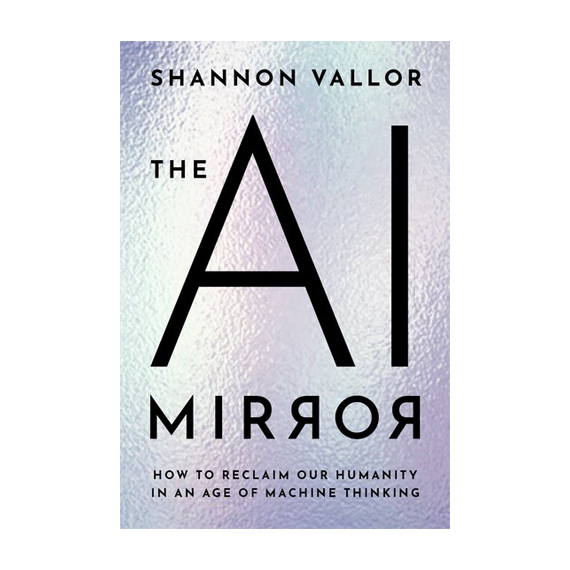The AI Mirror
A review by Punkt. Founder & CEO, Petter Neby.
The AI Mirror, by Shannon Vallor
Since ChatGPT´s release in November 2022, the following 12 months or so saw the world seemingly go off the rails as the media landscape gave way to technologist ‘prophets’ taking centre stage, promoting the infinite, and the most dystopian, possibilities of AI.
The ‘money industry’, seeing the insatiable attention anything AI received, was the first to profit from the hype, even when buying-in at extortionate prices not seen since the late 90’s. But fast forward some months, after countless books and articles, there is now a more deeply rooted and balanced understanding of what AI technology is, and is not.
Thankfully, with Vallor´s book, ‘The AI Mirror. How to reclaim our humanity in an age of machine thinking’, that balanced view has its anchor. Vallor is a philosopher of technology, and may the world give much more voice to proper thinkers such as her. She urges us to recognise that, far from being the servants of a superhuman intelligence, ChatGPT and similar technologies, are merely “giant mirrors made of code, built to consume our words, our decisions, our art . . . then reflect them back to us”. Another pertinent description of how we should understand AI is that it ‘sees’ the world as if its topography is flat, without the slightest elevation.
Vallor is no anti-AI. She is balanced, seeing multiple examples of where AI can be of great value, to industry and society. She may also subscribe to the thinking reflected by the science fiction writer, Ted Chiang, who in the middle of the AI craze, thought it very unintelligent to call AI ‘Intelligence’, suggesting that ‘Applied Statistics’ is a more fitting description.
Vallor’s message is that however real AI systems seem, we must not be mistaking them for the beginnings of an Artificial General Intelligence (AGI), i.e. machines that feel, because “these mirrors know no more of the lived experience of thinking and feeling than our bedroom mirrors know of our inner aches and pains”.
She notes that “we are dangerously captivated – and also misled – by the image of ourselves that is reflected back by AI machinery.”
As we have seen thus far, with social media and ubiquitous tech, the primary issue comes down to the appetite for wealth, and socio-political power.
Let’s hope that aside from simply reflecting ourselves in the AI mirror for useful purpose, any real risks or negatives are better mitigated this time round, by appropriate and effective regulation, with governments and institutions that can keep up and initiate the required decrees.
The AI Mirror, is published by Oxford University Press
